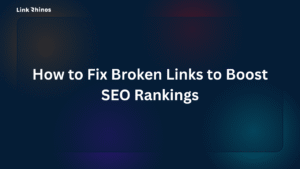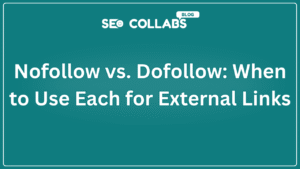Domain Authority (DA) is one of the most coveted metrics in SEO, acting as a barometer of your website’s credibility and ranking potential. While many factors influence DA, ethical link exchanges remain a powerful tool—if executed strategically. This blog breaks down how and why well-planned link exchanges boost DA, the pitfalls to avoid, and actionable steps to turn partnerships into ranking gold.
Table of Contents
Understanding Domain Authority
DA (a Moz metric scored 1–100) predicts how likely your site is to rank on SERPs. It’s calculated based on:
- Linking Root Domains: The number of unique websites linking to you.
- Quality of Backlinks: Authority and relevance of those linking sites.
- Content Quality: Engagement and uniqueness of your content.
- Technical SEO: Site speed, mobile-friendliness, and security.
The right link exchanges directly impact the first two factors—linking root domains and backlink quality—making them a cornerstone of DA growth.
How Ethical Link Exchanges Boost DA
1. They Increase Linking Root Domains
Google views backlinks from diverse, authoritative sites as votes of confidence. Each relevant, high-quality link from a partner site adds to your “link equity,” signaling trust to search engines.
Also Read
Example: A DA 40 fintech blog exchanging links with a DA 50 cybersecurity site gains authority in both niches.
2. They Improve Relevance Signals
Links from sites in your niche strengthen topical authority. Google’s algorithms increasingly prioritize context, so a link from a related site (e.g., a vegan restaurant partnering with a health blog) carries more weight than a generic high-DA link.
3. They Diversify Anchor Text Profiles
Natural link profiles mix branded, generic, and long-tail anchors. Ethical link exchanges let you negotiate anchor text that feels organic (e.g., “Learn more about sustainable farming” vs. an over-optimized “best organic compost”).
4. They Drive Referral Traffic
A well-placed link on a partner’s site can send engaged visitors to your content. Increased traffic and engagement (time on page, bounce rate) indirectly boost DA by signaling content quality.
The “When Done Right” Checklist
Link exchanges only improve DA if they follow these rules:
✅ Partner with Relevant, Authoritative Sites
- Use DA/DR Filters: Partner with sites within 10–15 points of your DA.
- Check Organic Traffic: Tools like Ahrefs or SEMrush reveal if their traffic is genuine.
- Avoid “Link Farms”: Sites with 100+ outgoing links per page are red flags.
✅ Prioritize Contextual Links
- Embed links naturally within blog posts, guides, or resources.
- Avoid footer/sidebar links: These are often devalued by algorithms.
✅ Maintain a Natural Link Velocity
- Don’t rush: Building 50 links in a week looks manipulative.
- Aim for gradual growth: 5–10 high-quality links/month is sustainable.
✅ Monitor Reciprocity Balance
- Avoid 1:1 ratios: If 100% of your links are reciprocal, Google may penalize you.
- Use SEO Collabs’ Reciprocity Tracker: Keep reciprocal links under 30% of your total backlinks.
Real-World Example: DA Growth Through Strategic Exchanges
A B2B SaaS company (DA 35) used SEO Collabs to:
- Partner with 10 niche-relevant tech blogs (DA 30–55).
- Exchange contextual links in guest posts and product comparisons.
- Rotate anchor text and monitor link health monthly.
Result: DA jumped to 52 in 6 months, with a 40% increase in organic traffic.
Common Mistakes That Hurt DA
❌ Exchanging Links with Irrelevant Sites
- Why it fails: A travel blog linking to a cryptocurrency site confuses algorithms and erodes topical authority.
- Fix: Use SEO Collabs’ Niche-Specific Search to filter partners.
❌ Over-Optimizing Anchor Text
- Why it fails: Exact-match anchors like “best CRM software” trigger Penguin penalties.
- Fix: Use SEO Collabs’ Anchor Text Analyzer to maintain diversity.
❌ Ignoring Link Maintenance
- Why it fails: If a partner’s site gets penalized, your DA drops too.
- Fix: Set up Link Health Alerts on SEO Collabs to disavow toxic links fast.
How SEO Collabs Simplifies DA-Friendly Exchanges
- Vetted Partner Database: All users are screened for spam and relevance.
- Reciprocity Ratio Monitoring: Automatically flags over-optimized exchanges.
- Link Placement Insights: Recommends contextual placements (e.g., within blog body vs. footer).
The Long-Term DA Playbook
- Start Small: Focus on 3–5 high-quality partners initially.
- Track Progress: Use Moz’s DA tracker or SEO Collabs’ analytics.
- Expand Gradually: Add partners in complementary niches (e.g., a fitness site partnering with a wellness podcast).
Conclusion
Ethical link exchanges aren’t a quick fix—they’re a long-term strategy to build authority, relevance, and trust. By partnering with the right sites, avoiding shortcuts, and leveraging tools like SEO Collabs, you can climb the DA ladder without triggering penalties.

Ready to Elevate Your DA? Join SEO Collabs and transform link exchanges into a scalable growth engine.
About SEO Collabs: A secure platform for ethical link-building. Exchange links with vetted partners, automate compliance checks, and watch your Domain Authority soar—safely.




